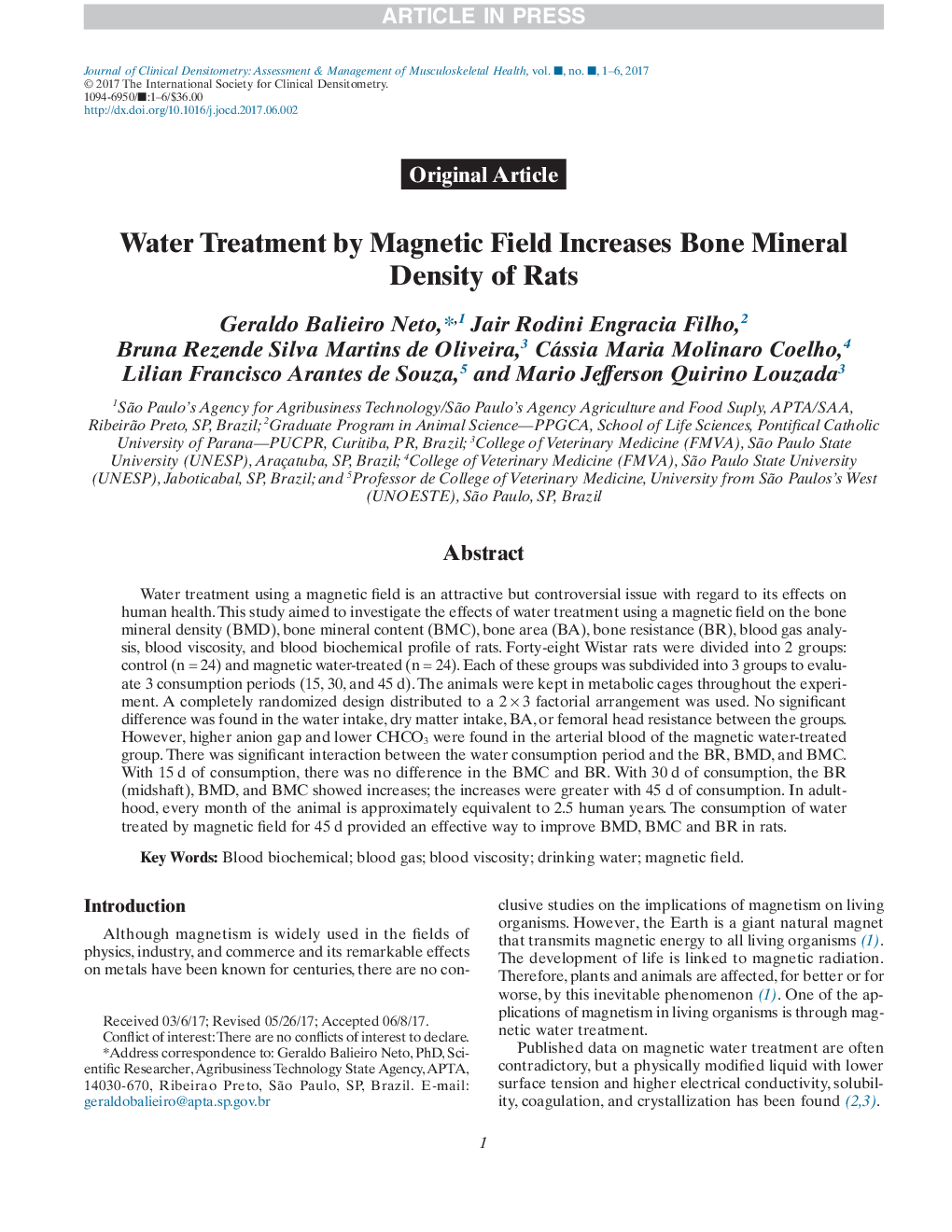| Article ID | Journal | Published Year | Pages | File Type |
|---|---|---|---|---|
| 8723047 | Journal of Clinical Densitometry | 2017 | 6 Pages |
Abstract
Water treatment using a magnetic field is an attractive but controversial issue with regard to its effects on human health. This study aimed to investigate the effects of water treatment using a magnetic field on the bone mineral density (BMD), bone mineral content (BMC), bone area (BA), bone resistance (BR), blood gas analysis, blood viscosity, and blood biochemical profile of rats. Forty-eight Wistar rats were divided into 2 groups: control (nâ=â24) and magnetic water-treated (nâ=â24). Each of these groups was subdivided into 3 groups to evaluate 3 consumption periods (15, 30, and 45âd). The animals were kept in metabolic cages throughout the experiment. A completely randomized design distributed to a 2âÃâ3 factorial arrangement was used. No significant difference was found in the water intake, dry matter intake, BA, or femoral head resistance between the groups. However, higher anion gap and lower CHCO3 were found in the arterial blood of the magnetic water-treated group. There was significant interaction between the water consumption period and the BR, BMD, and BMC. With 15âd of consumption, there was no difference in the BMC and BR. With 30âd of consumption, the BR (midshaft), BMD, and BMC showed increases; the increases were greater with 45âd of consumption. In adulthood, every month of the animal is approximately equivalent to 2.5 human years. The consumption of water treated by magnetic field for 45âd provided an effective way to improve BMD, BMC and BR in rats.
Related Topics
Health Sciences
Medicine and Dentistry
Endocrinology, Diabetes and Metabolism
Authors
Geraldo Balieiro Neto, Jair Rodini Engracia Filho, Bruna Rezende Silva Martins de Oliveira, Cássia Maria Molinaro Coelho, Lilian Francisco Arantes de Souza, Mario Jefferson Quirino Louzada,
